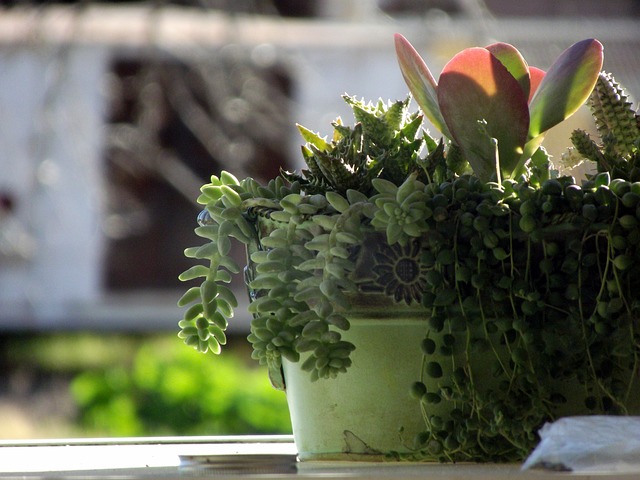
After months of outdoor gardening, our attention has turned indoors. Now is a good time to take stock of the health of our houseplants and to give them the TLC they need to thrive during the winter.
The first thing to understand is that most of the plants that we consider houseplants come from tropical climates. But our homes, with their low light and lack of humidity, are like deserts in comparison. With just a bit of effort, however, we can grow strong and healthy houseplants that brighten up indoor spaces and provide a variety of positive health benefits—everything from purifying the air to improving our moods.
Soil
Most houseplants do well when grown in a loose and lightweight soil mix. The key is to provide plants with a growing medium that allows air to circulate and retains water. For best results, use a 50/50 mix of potting soil and compost that has been amended with an all-natural volcanic rock dust like Cascade Minerals Remineralizing Soil Booster. A high-quality, all-natural volcanic rock dust provides plants with the essential trace minerals they need to stay strong, healthy and resistant to disease.
(Note: For surface applications, use 1 tsp of Cascade Minerals Remineralizing Soil Booster per every inch of pot diameter then light stir into the top of the soil and water thoroughly.)
Water
Overwatering is the most common reason that houseplants die. Soil that is wet and doesn’t drain properly will begin to smell and lead to root rot. This is another reason to use a lightweight soil mix that is able to retain water while allowing for good drainage.
A good rule of thumb is to water until water drains from the bottom of the pot, then wait a few days to allow the plant to dry out slightly. Test the soil by pressing a finger down about an inch—if it’s damp, it doesn’t need watering yet.
Temperature & Light
Different plants have different needs (read the plant tags for details), but most plants need a daily dose of light and dark to grow properly. Houseplants that become “leggy” are searching for more light and may need supplemental light from indoor grow lights. On the flip side, plants whose leaves appear burnt or crisped may be receiving too much light.
Houseplants also tend to enjoy cooler temperatures at night (around 55° to 65° F). If you maintain a constant temperature of 72° F, you may notice that some flowering plants are unable to set new flowers.
Humidity
By releasing as much as 97% of the water that they take in, houseplants help increase indoor air humidity. This in turn helps minimize respiratory issues and decreases symptoms related to dry skin, colds and sore throats.
Still, in most modern homes, the air is dry with very low levels of humidity. With their naturally higher levels of moisture, bathrooms and kitchens can be good places for houseplants. Spraying a plant’s leaves with water also helps increase humidity—and lets foliage breathe by removing accumulated dust and dirt. You might also consider using a humidifier to combat dry air and to create a climate that benefits both plants and people.
Known as nature’s stress relievers, houseplants can lower blood pressure, boost optimism and contribute to an overall feeling of well-being. Plants can also remove up to 87% of volatile organic compounds (VOCs) – things like formaldehyde, benzene and trichloroethylene which are found in everyday items like furniture, paint, inks and plastic bags.
All they need from us in return is a little TLC!
